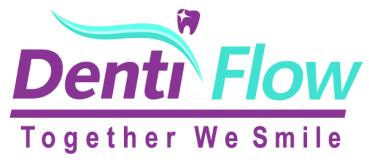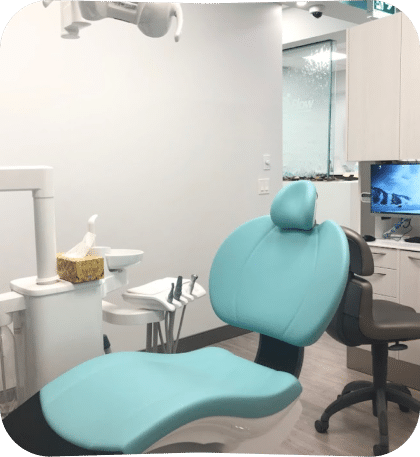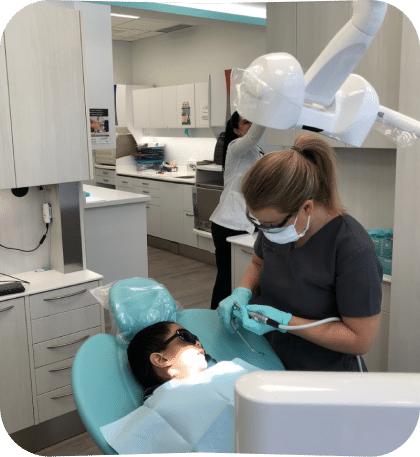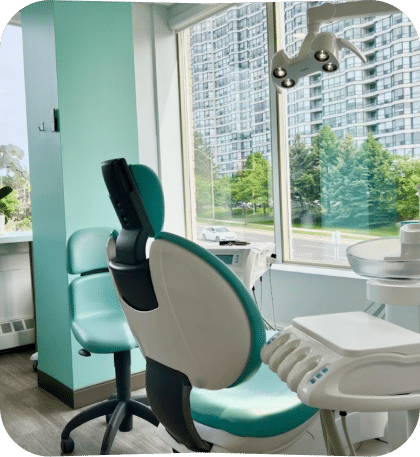TMJ


It can be frustrating to lie down in bed for 8 hours or even more and still feel exhausted the next day.
Can you relate? Do you also experience facial pain that radiates to your neck and back? Do you find it hard to open and close your jaw?
One factor to look into is a temporomandibular joint disorder or TMD.
What is Temporomandibular Disorder or TMD?
The temporomandibular joint is located on either side of the face. It connects the lower jaw to the skull and is responsible for opening and closing the mouth.
The TMJ allows us to move our jaw forward and back and side to side. But when these joints are displaced, normal habits such as chewing and yawning can be uncomfortable.
The structures that make up the TMJ system must be aligned and synchronized to avoid these issues. TMJ disorders affect the muscles, jaw, and nerves in the jaw joint area. Myofascial pain or pain in the facial area is a common example of TMJ disorder.
What causes TMD?
The exact causes of TMJ dysfunction remain unclear, but there are several factors linked to it.
The TMJ moves like a hinge. It consists of a disk that absorbs shock and allows smooth jaw movement. If this disk is thrown out of balance, a person may experience TMD.
TMD can also be due to physical stress, trauma, or heavy blow to the area. Long-term teeth grinding and clenching can also contribute to jaw joint discomfort.
more Arthritis affecting the jaw joint can lead to chewing, speaking, and swallowing difficulties.
TMD symptoms to take note of:
At Dentiflow, our experienced dental team is dedicated to providing comprehensive tongue-tie treatment tailored to the unique needs of each child. Our approach includes:
Discomfort or pain. Dull, throbbing, or recurring pain in the jaw joint area can be due to inflamed jaw muscles.
Limited jaw movement. Restricted jaw movement can be due to a dislocated disk in your jaw joint.
Unusual sounds. The jaw should move without noise. If you often hear your jaw clicking when you open or close your mouth, and the sound comes with pain, it may be due to TMD.
Damaged teeth. The teeth can crack and wear faster due to teeth grinding. This can also lead to increased sensitivity as the nerves of the teeth become exposed.
Daytime drowsiness. If you still feel restless and tired during the day even with a full night’s sleep, it can be connected to TMD.
Loud snoring. Snoring too loudly that people near you find it hard to sleep can be a sign of a jaw joint problem. Note, however, that TMD isn’t the only potential cause of snoring.
How is TMJ related to sleep apnea and snoring?
Sleep apnea is a sleep-related breathing disorder that causes breathing pauses while you sleep.
Obstructive sleep apnea (OSA), the most common type of sleep apnea, occurs due to blocked airways. The air struggles to flow freely when the throat muscles over-relax. As a response, the body thrusts the lower jaw forward to expand airways. This can strain the jaw joint.
TMD is also connected to fatigue and exhaustion, which can worsen sleep apnea. The position of the jaw can make breathing during sleep smooth or harder. If you aren’t getting enough rest and are dealing with so much stress, sleep apnea and jaw joint issues can progress.
Snoring, on the other hand, is also associated with OSA and TMD. Snoring refers to the loud or harsh sound produced when a person sleeps. As the air struggles to pass through, the tissues vibrate and create loud sounds.
Snoring alone doesn’t always mean a person has sleep apnea or TMD. That’s why noting down irregularities you’re experiencing is crucial to help your medical provider diagnose the problem.
How can your dentist help treat TMD, sleep apnea, and snoring?
As experts in facial structure, dental professionals can help identify symptoms of sleep apnea.
They may not be the first healthcare provider that crosses your mind when it comes to TMD, but they’re trained and qualified to evaluate structures that affect and are connected to the mouth.
Your dentist can examine your mouth as well as related structures and pinpoint signs of jaw joint problems.
Visit Us for Tongue Tie Treatment in Thornhill
Don’t hesitate to talk to your dentist about jaw joint issues. They may be able to recommend and carry out procedures to ease your symptoms.
Treatments for TMJ dysfunction, sleep apnea, and snoring can be surgical or non-surgical.
Medications. Your dentist can prescribe medications to help you feel better while waiting for your follow-up checkups.
Dental procedures. Worn or damaged natural teeth may need to be fixed with the help of restorative options, such as crowns or fillings.
Use of custom oral devices. If your symptoms are due to collapsing structures that obstruct airflow, your dentist can also recommend custom oral devices. Impressions of your mouth are taken to ensure the device fits comfortably. Wearing the device as you sleep opens up airways by repositioning the lower jaw.
Therapies. Undergoing therapies can also help ease TMJ symptoms. Mouthguard therapy can help reduce snoring and enjoy quality sleep.
Surgery. If other options don’t work or aren’t enough, your dentist may also recommend surgical procedures to address the issue.
Learn more about treating TMJ problems in Thornhill, ON
Find out if you have jaw joint problems and what you can do to correct them. Schedule a thorough examination of your mouth and related structures with the dentist.
If you’re in Thornhill, ON, call us at (647) 424-5481. We do our best to book you at the earliest possible schedule.
Recharge better with restful sleep. Improve your oral health and life quality with treatment options for TMD at the dental office.












